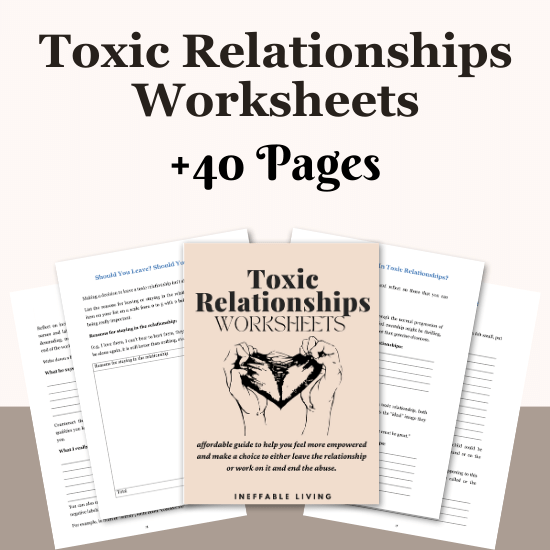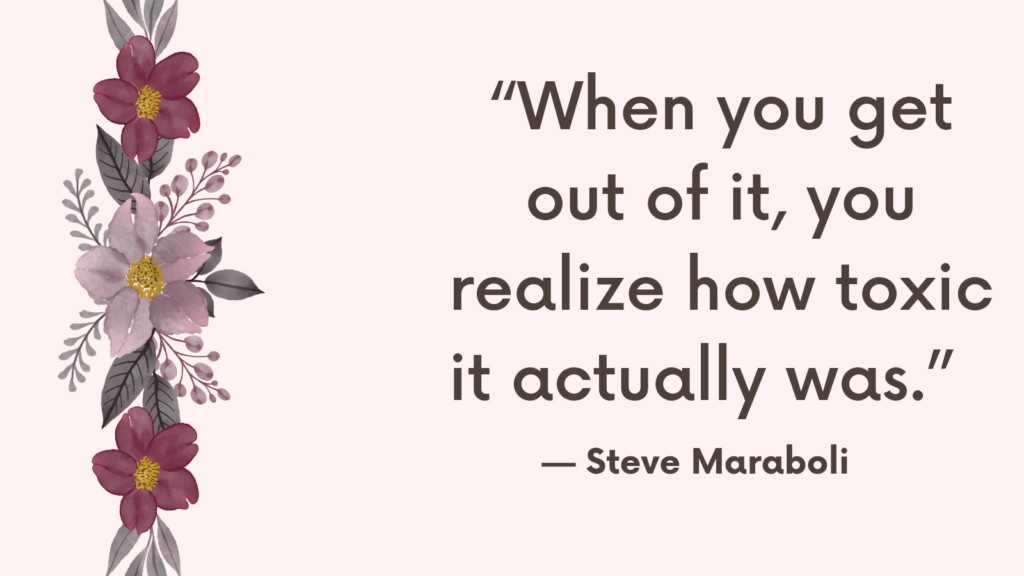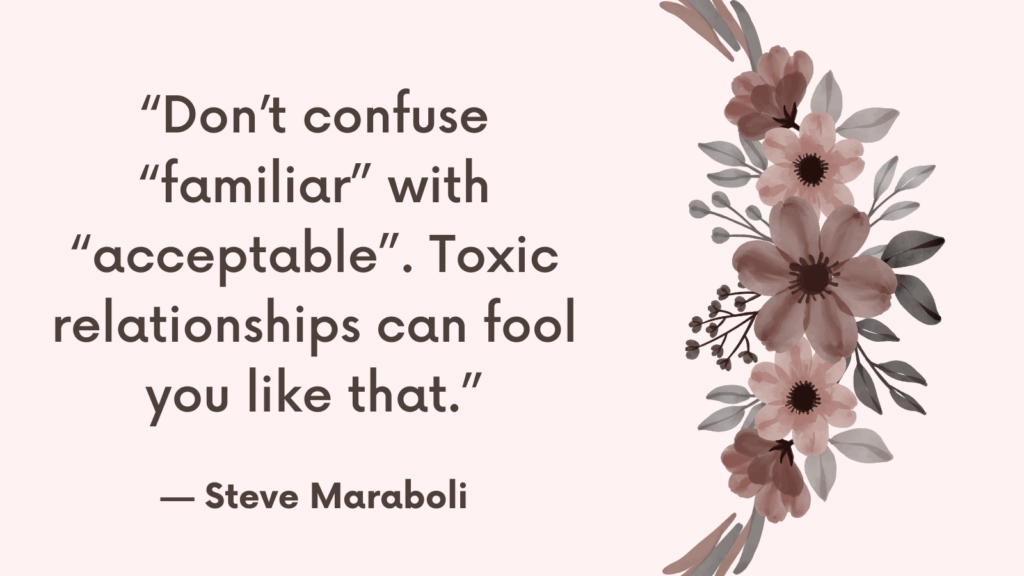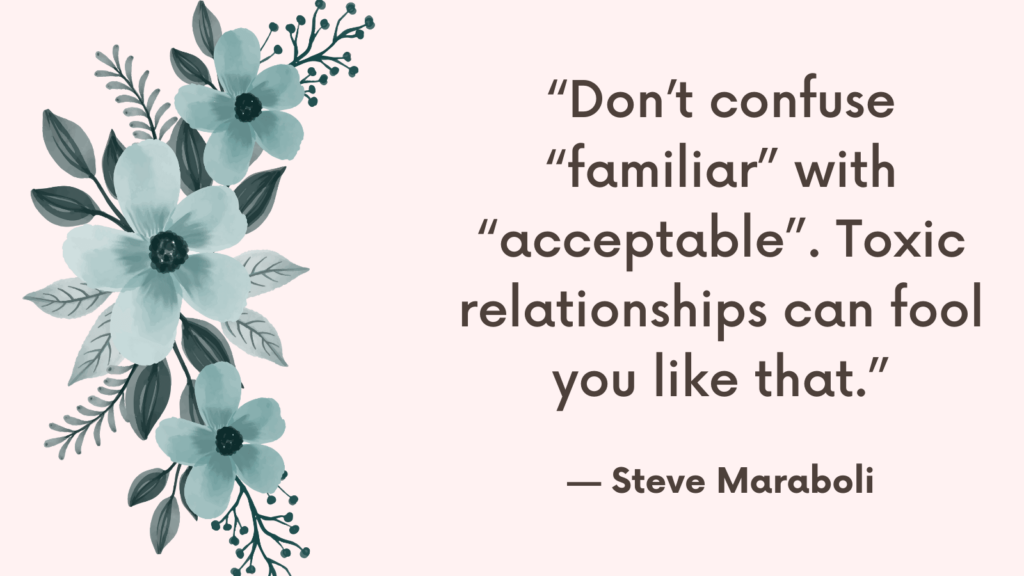This post contains symptoms of ongoing traumatic relationship syndrome.
What Is Ongoing Traumatic Relationship Syndrome?
Ongoing Traumatic Relationship Syndrome, also known as Cassandra Syndrome, refers to a complex psychological condition that can develop as a result of being in an abusive or toxic relationship for an extended period of time.
It is not an officially recognized clinical diagnosis, but rather a term that has been used to describe the psychological and emotional effects of ongoing trauma within relationships.
In clinical terminology, people in such traumatic or high-stress situations might present with symptoms that are associated with post-traumatic stress disorder (PTSD) or complex post-traumatic stress disorder (C-PTSD).
Symptoms of Ongoing Traumatic Relationship Syndrome
C-PTSD, which is closer to what OTRS seems to imply, involves a complex constellation of symptoms that can occur in individuals who have been exposed to prolonged traumatic circumstances, particularly during childhood, such as chronic abuse or repetitive exposure to crises. Its symptoms include but are not limited to:
1. Intrusive Thoughts: Recurrent, involuntary memories, nightmares, or flashbacks of the traumatic events or relationship.
2. Avoidance: Efforts to avoid thoughts, feelings, conversations, places, people, and activities that remind the individual of the traumatic relationship.
3. Negative Changes in Thoughts and Mood: Persistent and exaggerated negative beliefs or expectations about oneself, others, or the world; persistent, distorted blame of self or others about the cause or consequences of the traumatic events; persistent fear, horror, anger, guilt, or shame.
4. Detachment from Others: Feeling detached or estranged from others, difficulty maintaining close relationships.
5. Emotional Numbness: Difficulty experiencing positive emotions; feeling disconnected or distant from one’s emotions.
6. Hyperarousal: Symptoms include being easily startled, feeling tense or “on edge,” difficulty sleeping, and having angry outbursts.
7. Impaired Functioning: Significant impairment in social, occupational, or other important areas of functioning.
8. Self-destructive or Risky Behavior: Engaging in risky, reckless, or self-destructive behavior, such as substance abuse, self-harm, or suicidal ideation or attempts.
It’s important to note that experiencing a challenging relationship does not automatically lead to OTRS or any specific condition.
The impact of such experiences varies greatly from person to person, depending on a multitude of factors including the nature of the relationship, duration of exposure, personal resilience, and available support systems.
Related: Top 10 Signs You’re Healing From Narcissistic Abuse
How to Cope with Ongoing Traumatic Relationship Syndrome?
Here are some strategies to cope with the aftermath of such relationships.
1. Understanding the Impact
First, it’s crucial to acknowledge the profound impact a traumatic relationship can have on your mental, emotional, and physical well-being.
These relationships can leave you feeling isolated, worthless, and powerless, with profound effects on your self-esteem and worldview.
Recognizing the signs—such as feelings of constant anxiety, depression, emotional numbness, and flashbacks—is the first step towards healing.
2. Support Groups
Joining a support group can provide a sense of community and understanding.
Sharing your experiences with others who have gone through similar situations can validate your feelings and foster a sense of belonging.
3. Establishing Safety and Stability
Creating a safe and stable environment is essential for your recovery.
This might mean making significant life changes, such as ending the traumatic relationship, moving homes, changing jobs, or securing a support network of friends and family who understand and support your need for safety.
Related: Top 10 Signs You’re Ready to Start Dating After Narcissistic Abuse
4. Self-Care Practices
Regular exercise, a nutritious diet, and sufficient sleep can significantly impact your mental health, enhancing your mood and resilience.
Practices like meditation, yoga, and deep-breathing exercises can help regulate your body’s stress response and promote a sense of peace.
Engaging in creative activities such as writing, painting, or music can be therapeutic, offering an outlet for expressing feelings that might be hard to articulate verbally.
5. Building Emotional Resilience
Allowing yourself to feel and express your emotions is crucial. Bottling up feelings can lead to increased stress and anxiety. Journaling or talking with a trusted friend or therapist can be helpful outlets.
6. Self-Compassion
Practicing self-compassion involves treating yourself with the same kindness, concern, and support you would offer a good friend. Acknowledge your suffering, recognize its common humanity, and be mindful without over-identifying with your pain.
Related: 6 Things Happen When a Codependent Leaves a Narcissist
7. Setting Boundaries
Learning to set healthy boundaries is essential for protecting your emotional well-being. This includes saying no, asking for what you need, and distancing yourself from harmful relationships.
8. Rebuilding Trust and Relationships
Rebuilding trust, both in yourself and others, is a slow process. Start with small steps, trusting yourself to make minor decisions, and gradually work towards larger ones.
Educate yourself about the characteristics of healthy versus unhealthy relationships. Understanding these can help you make better choices in the future and recognize red flags early on.
9. Identifying Values and Strengths
Reflect on your core values and strengths. Rediscovering these can guide you in making decisions that align with who you want to be and the life you want to live.
Related: 8 Stages Of Healing After Narcissistic Abuse (+FREE Breakup Recovery Worksheets)

Conclusion
Healing from a traumatic relationship is not linear. There will be setbacks and challenges.
Continuously learning about yourself, your needs, and how to cope with stress and trauma can help you adapt more effectively to these challenges.



